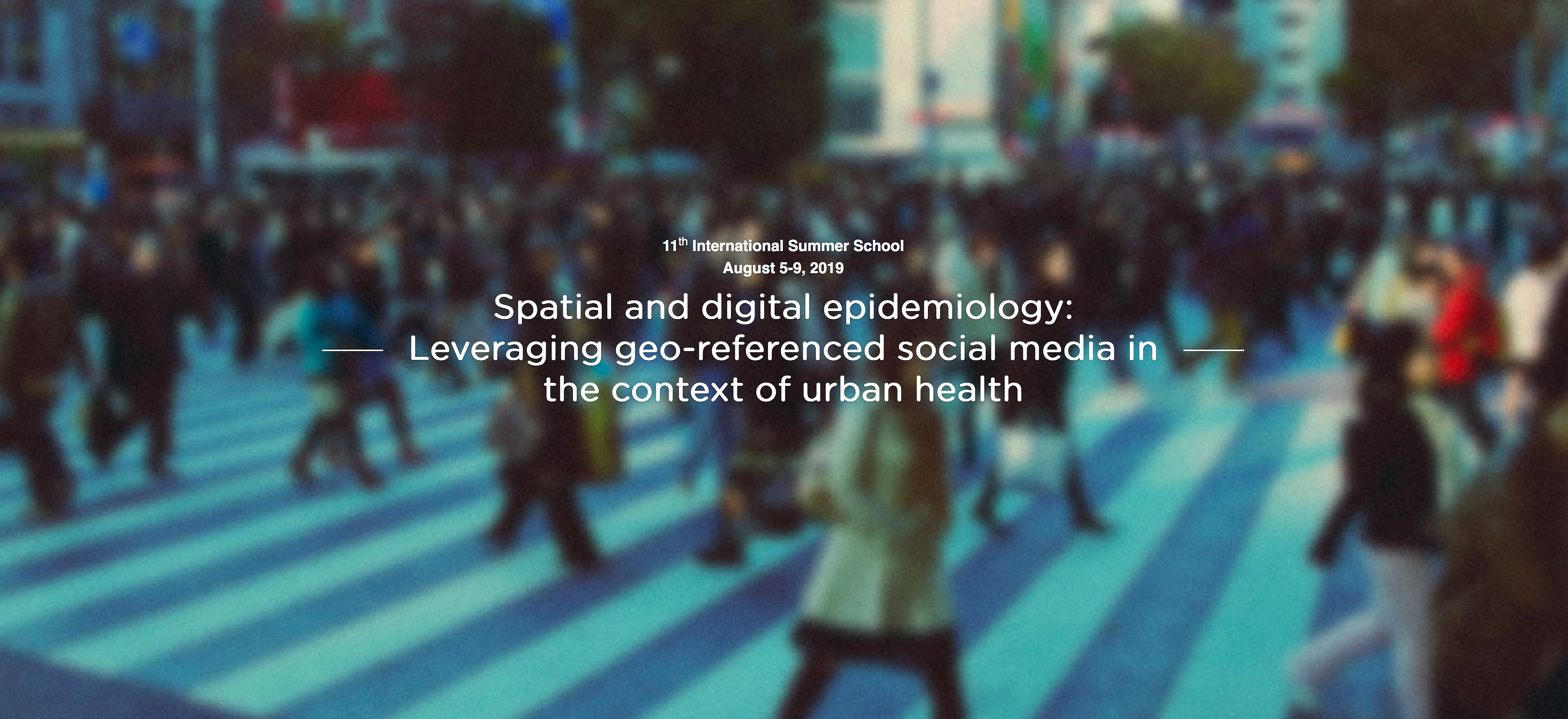11th International Summer School Spatial and digital epidemiology
Leveraging geo-referenced
social media in the context of urban health
August 5 – 9, 2019
The course is designed for researchers, public health professionals, epidemiologists, geographers, and clinicians familiar with solid knowledge of epidemiologic principles, and multivariable modeling.
Audience
The course is designed for researchers, public health professionals, epidemiologists, geographers, and clinicians familiar with solid knowledge of epidemiologic principles, and multivariable modeling.
Aims
The course addresses spatial epidemiological approaches to social media data. We concentrate on state-of-the-art multivariable statistical and spatial statistical modelling to health outcomes as identified in geo-referenced Twitter data and associations with socio-ecological factors of urban contexts.
We combine theoretical and lab work on statistical analysis and spatial-epidemiological modeling techniques in a vibrant international and interdisciplinary setting.
The summer school Spatial and digital epidemiology: Leveraging geo-referenced social media in the context of urban health is attracting participants due to its interdisciplinary character. Combining the scientific approaches of the discipline of geography with its genuine focus on space with those of epidemiology, biostatistics, and the public health sciences makes it possible and fruitful for the participants to deal with the spatial dimensions of health. The summer school faculty has long-lasting cooperation demonstrated by joint publications in the field of urban and megacity health, geo-spatial, and social media analysis.
Learning objectives
After completing the course, you will be able to:
- Describe the relevance, potential, and challenges of spatial and
digital epidemiological approaches to advance urban health research:
• Review concepts of geospatial data analysis and visualization
• Describe big geodata social media analytics for public health - Apply robust spatial and digital epidemiological approaches towards addressing important urban health challenges:
• Analyse mental health outcomes as identified in social media
• Employ geo-processing (e.g., integrating geo-spatial social media information)
• Perform exploratory spatial data analysis (e.g., geo visualization and mapping)
• Apply spatial statistics (e.g., hotspot analysis, spatial regression) - Develop a project with potential for real-world urban health impact using geospatial big data methods:
• Extend your multidisciplinary network
• Work more effectively in collaboration with other
disciplines for investigating multidisciplinary health problems.
